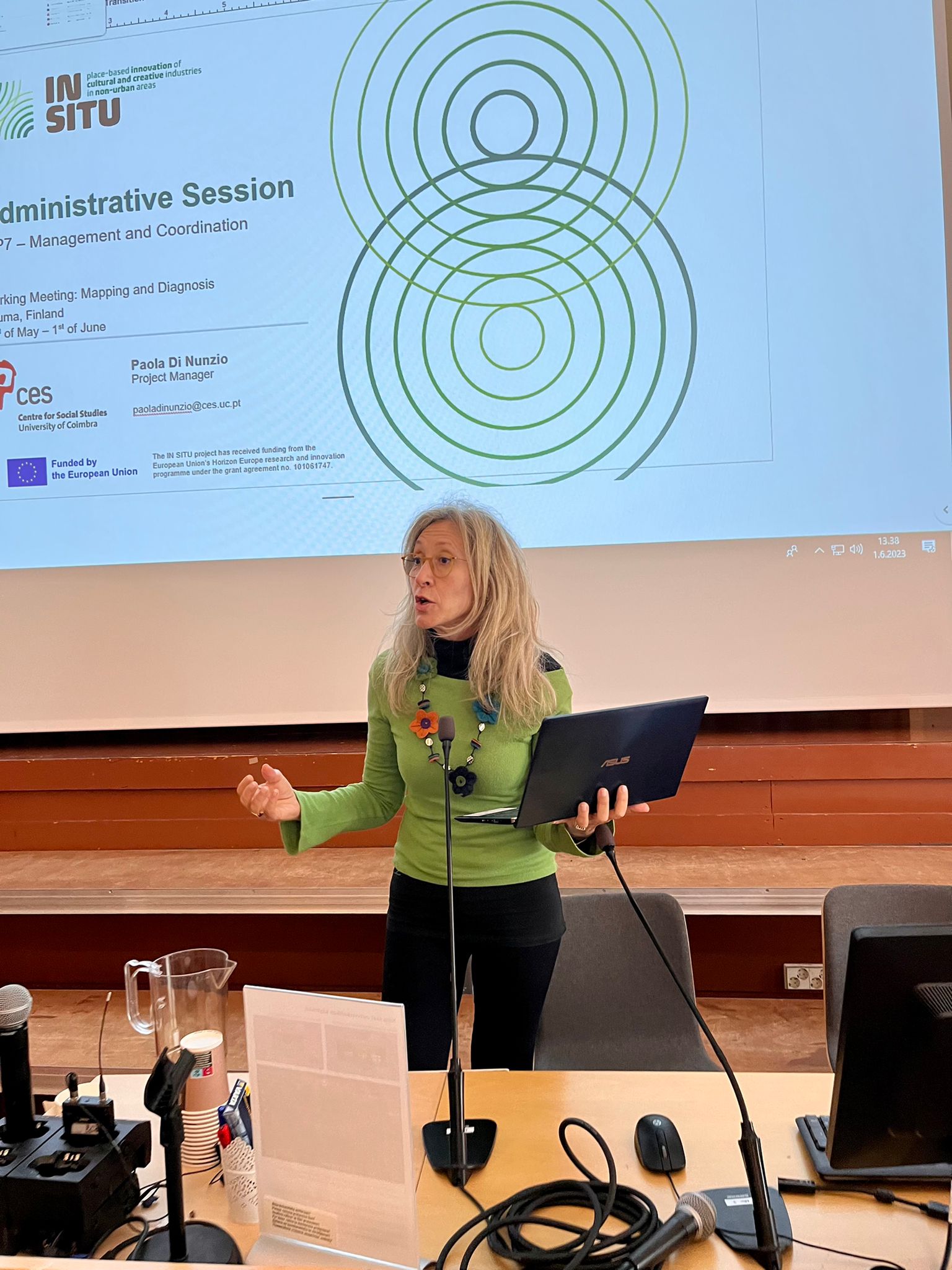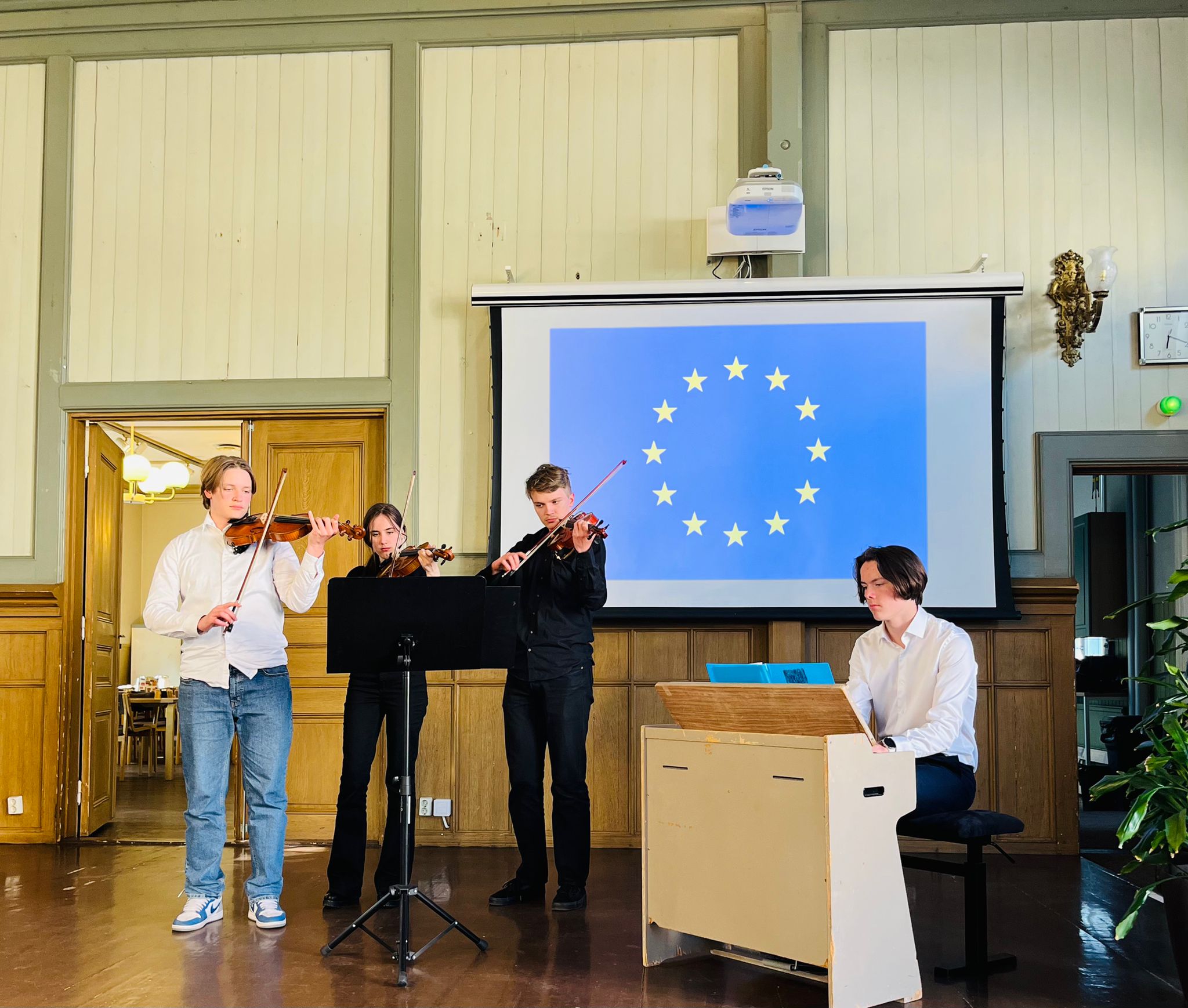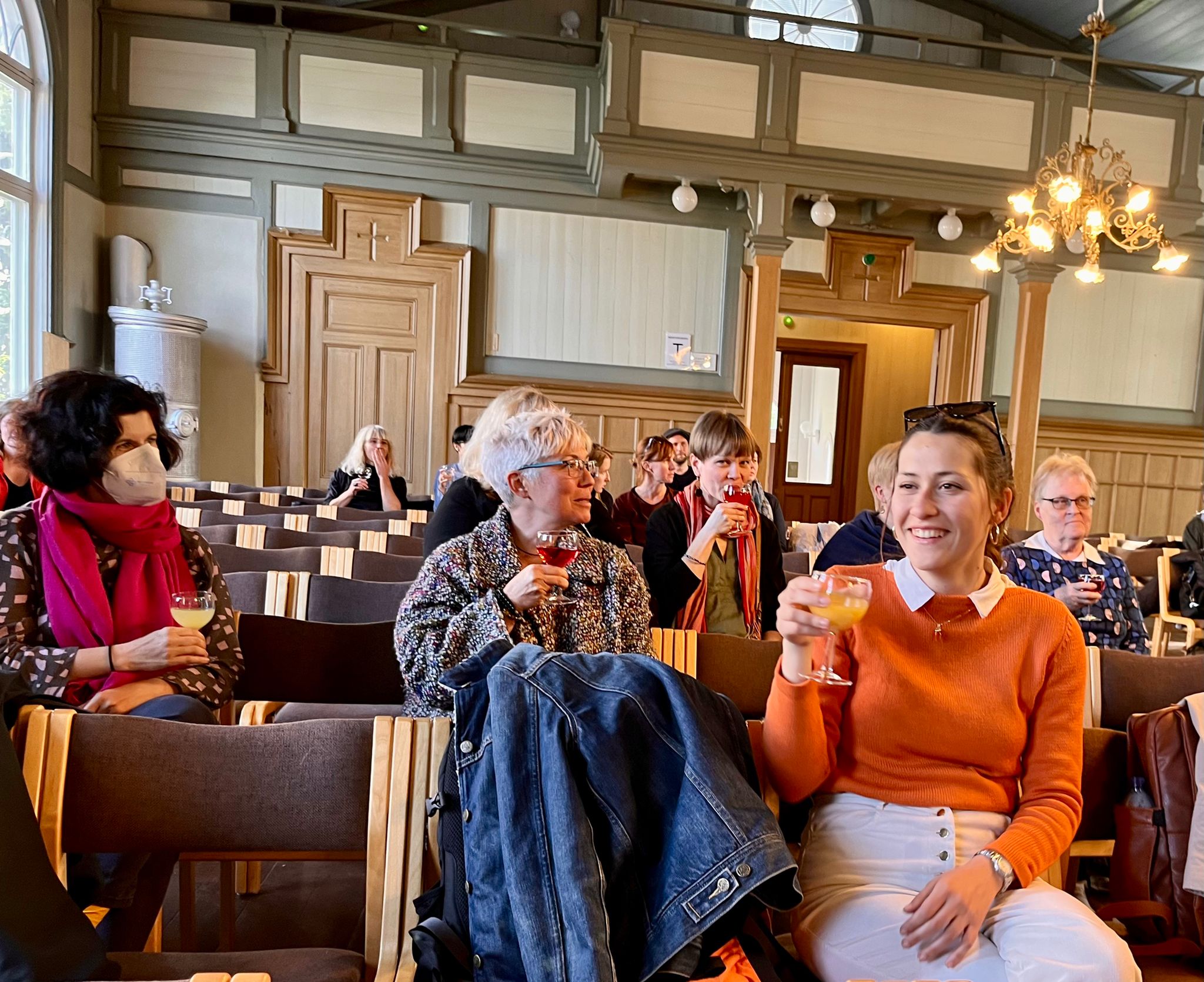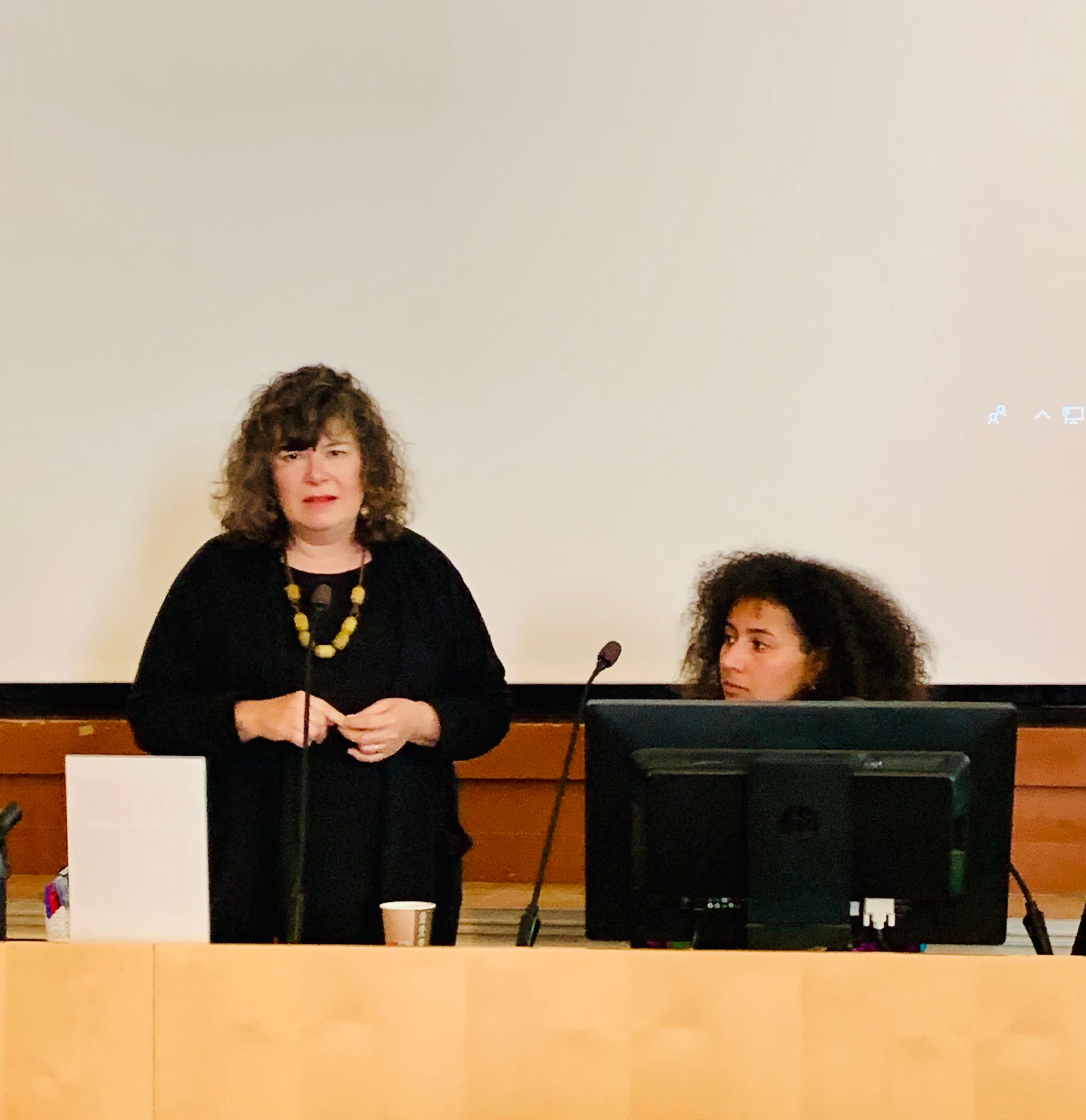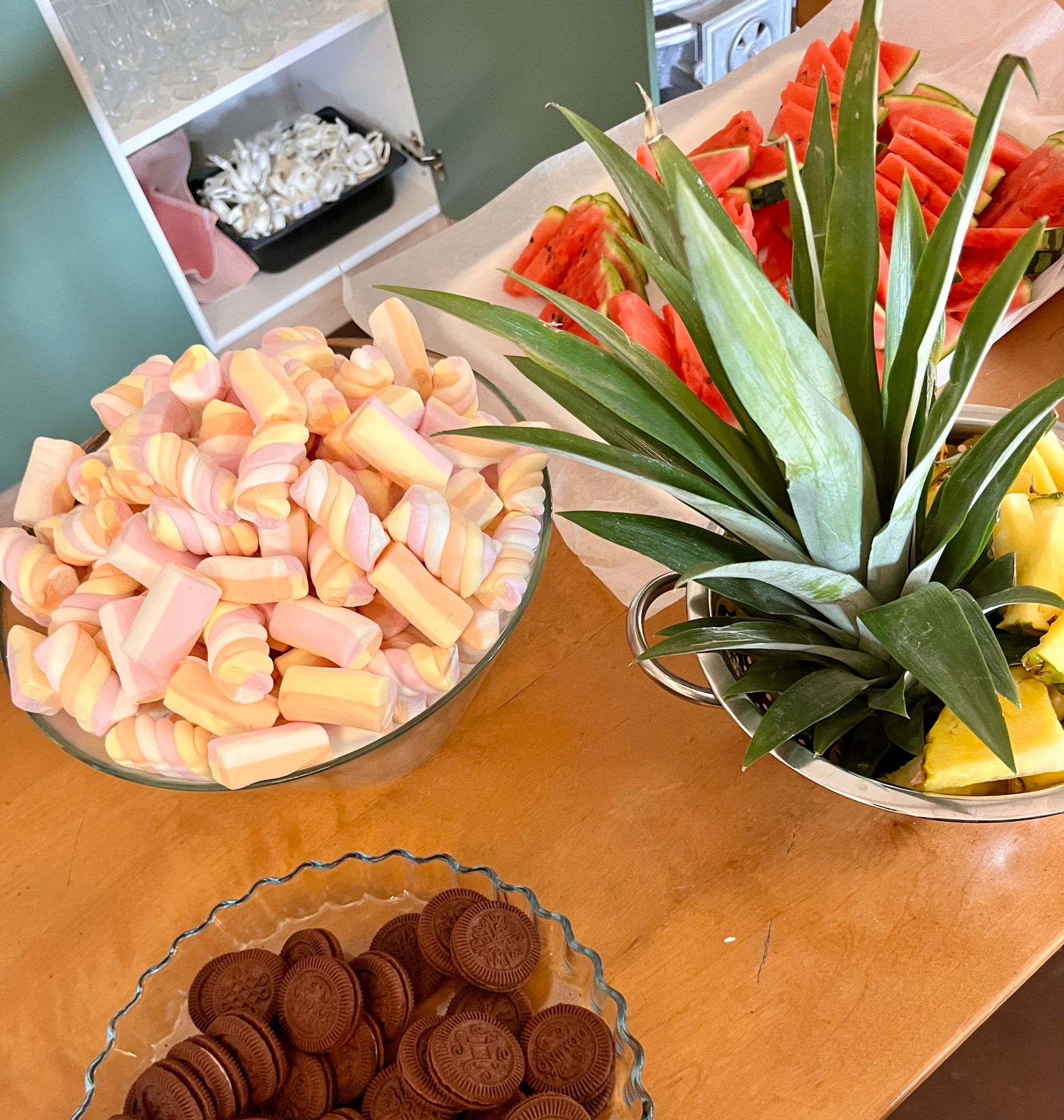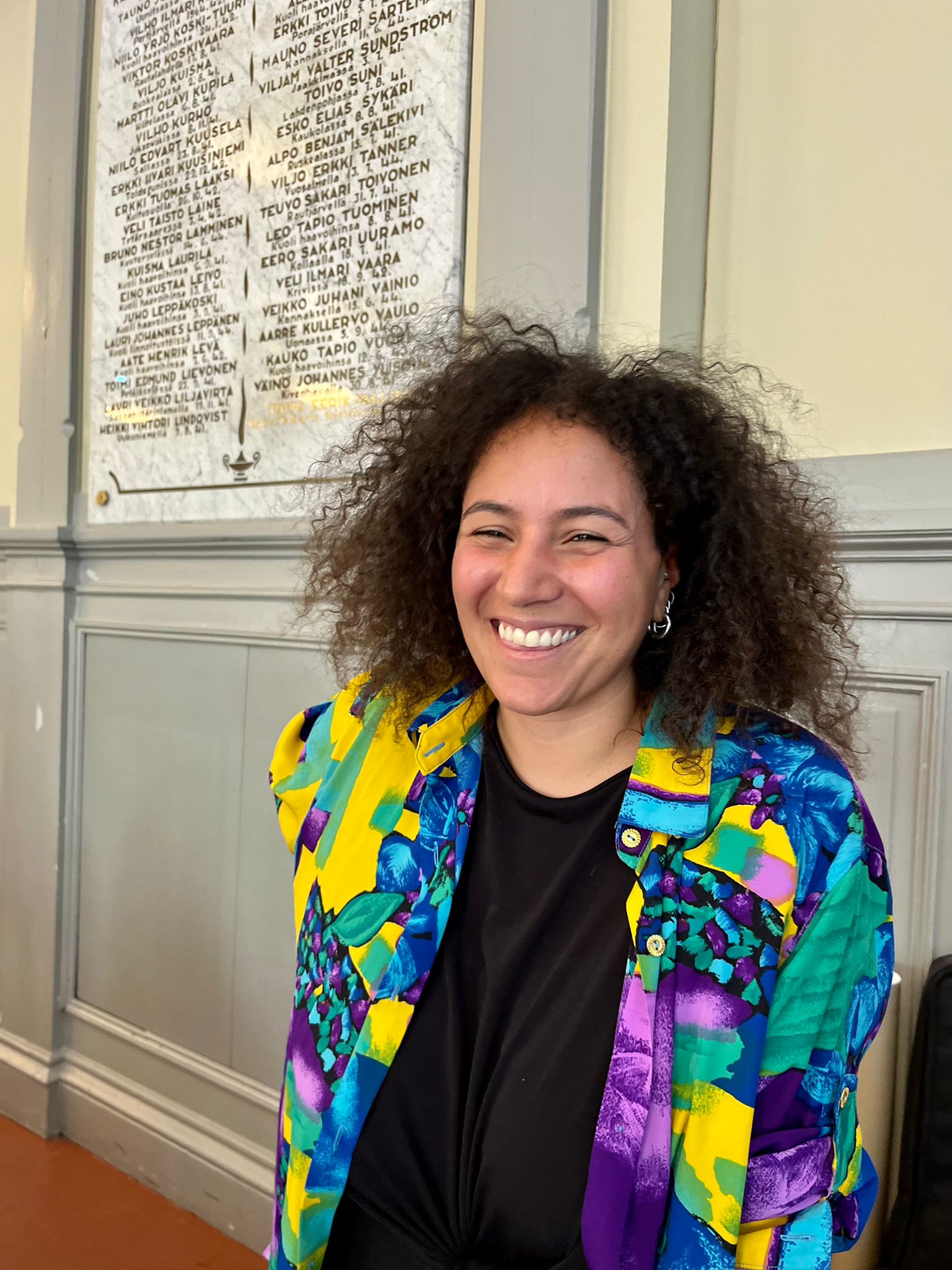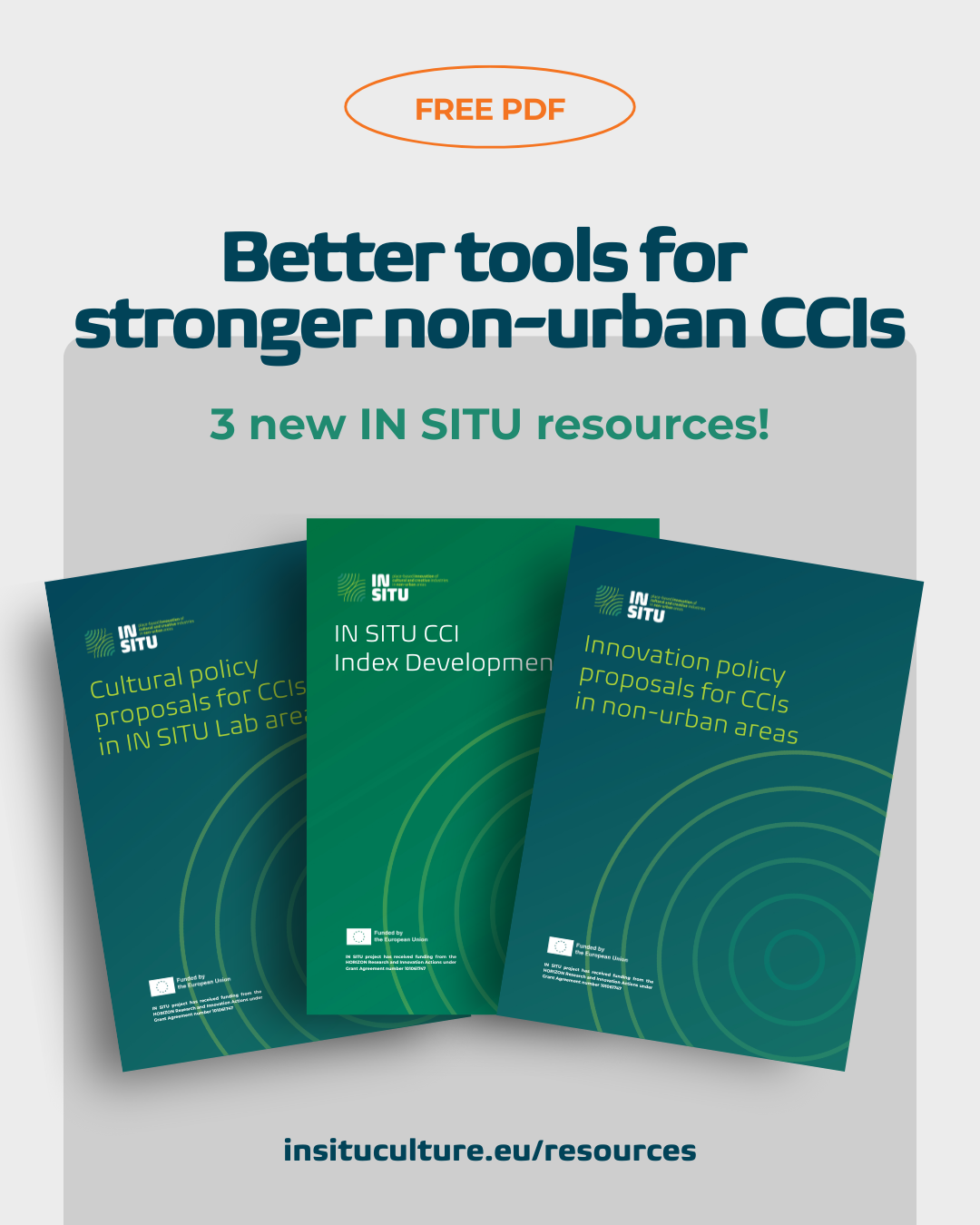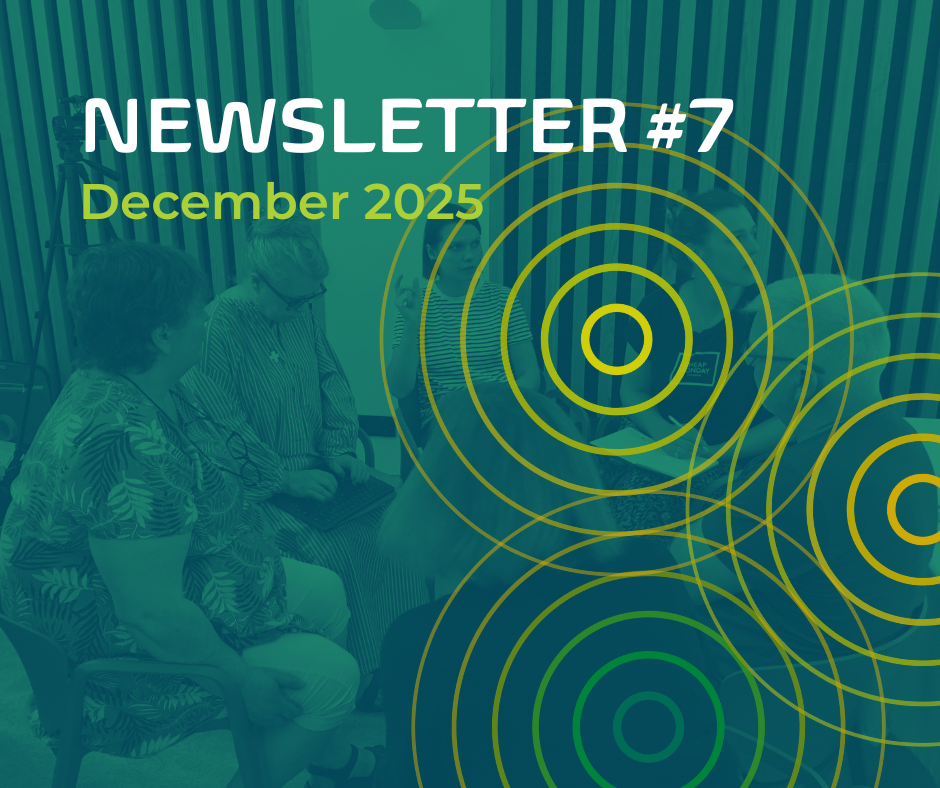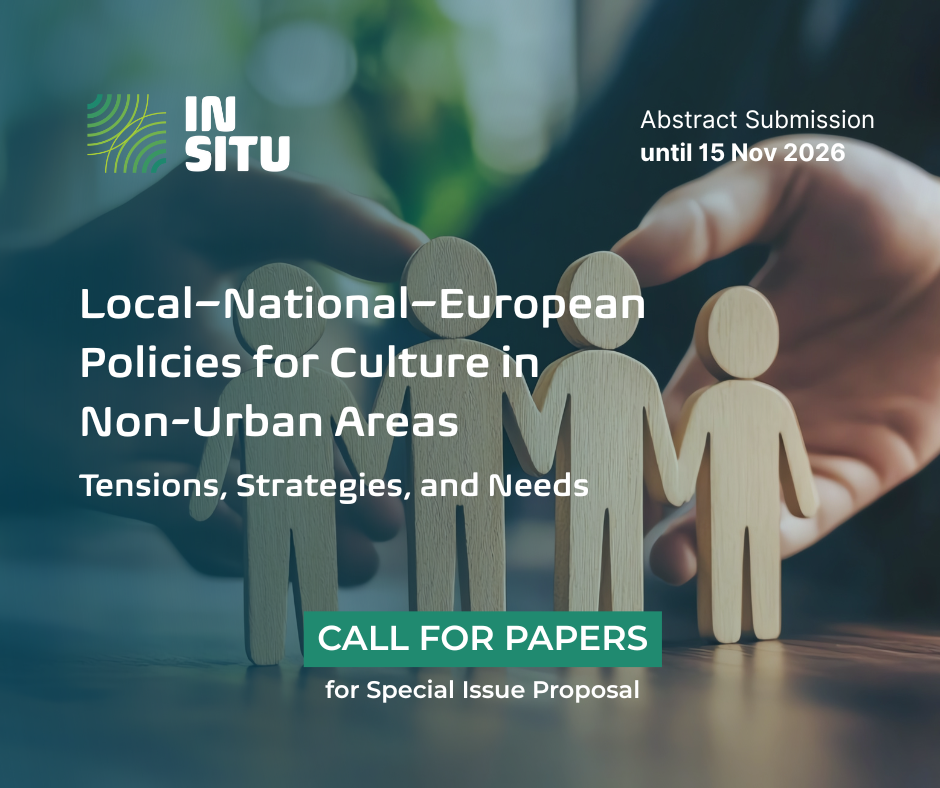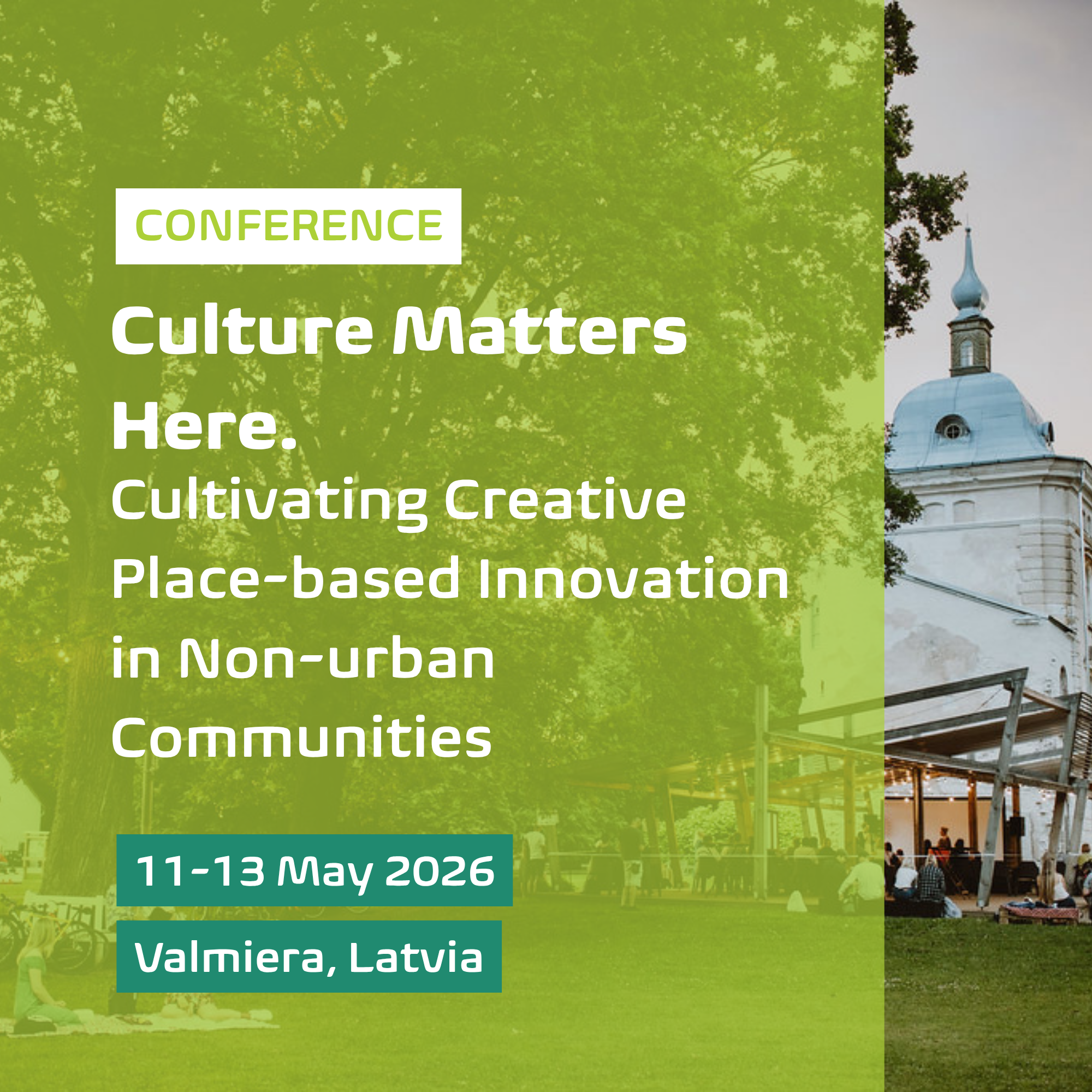From May 31 to June 1, 2023 the IN SITU Consortium of partners came together in Rauma, Finland –located in one of the IN SITU Lab areas – to assess the state of research at this point and to discuss and map the next chapter of this Horizon Europe-funded project (no. 101061747). This in-presence working meeting, themed “Mapping and Diagnoses,” was hosted by the University of Turku team of researchers.
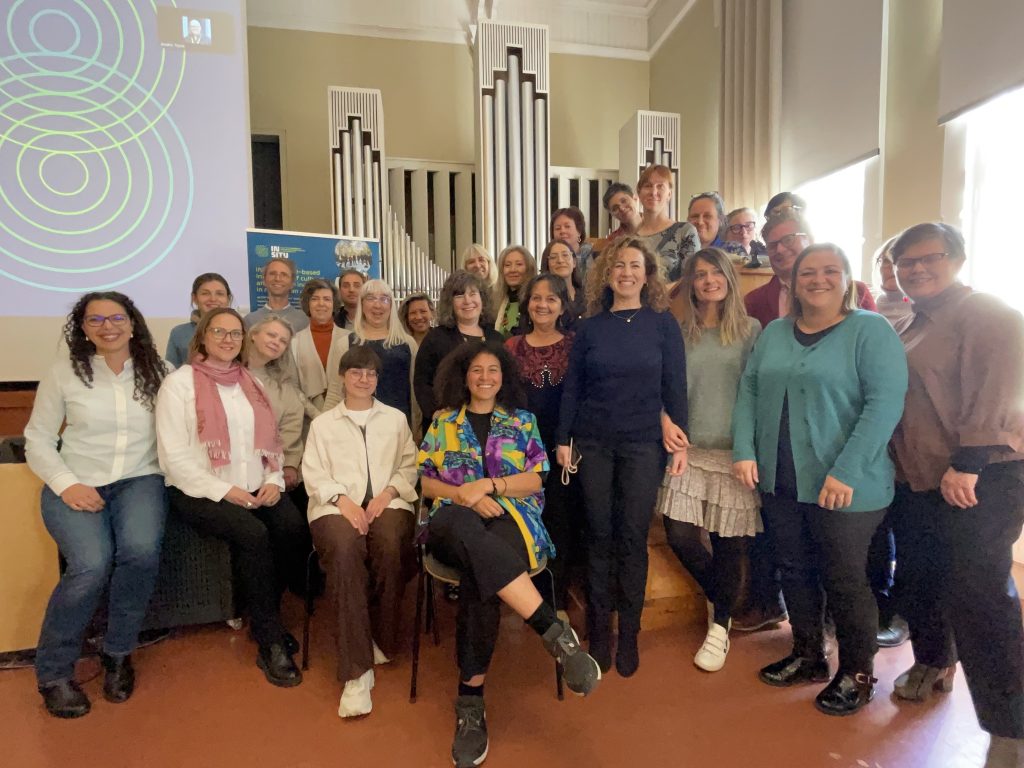
On the first day, the meeting focused on discussions of work-in-progress for reports due in the next few months, with a special focus on the work conducted to date and planned within each of the six IN SITU Lab areas, which are located in Ireland, Iceland, Azores/Portugal, Croatia, Latvia and Finland. As well, the meeting provided opportunities to learn more about recently completed research and to consider how it can inform other activities in the project and how to best discuss it with local actors in the IN SITU Labs. The second day was devoted more to planning, governance, and administrative matters and included the project Consortium’s General Assembly.
The meeting began with teams from each IN SITU Lab partner – University of the Azores (Portugal), University of Galway (Ireland), Bifröst University (Iceland), University of Turku (Finland), Latvian Academy of Culture (Latvia), and Kultura Nova Foundation (Croatia) – presenting research findings, insights, and first-hand knowledge gained from the people they are working with in each location. This knowledge resulted from numerous activities – including Cultural Mapping, public Speak Out sessions, focus groups with local cultural and creative industries agents, and Horizontal Network meetings – that have been held over the last three months.
Then, three reports currently in process, D3.1: ‘Report on local mapping processes and synthesis of findings in each Lab location’, D3.2: ‘Report on the case studies in each IN SITU Lab location’, and D3.3: ‘Guidelines for monitoring development of the case studies’ were presented and discussed by all partners, led by Mark Rainey from the University of Galway, Ireland, and Martina Fraioli from the European Network of Cultural Centres (ENCC), with additional remarks from Nancy Duxbury from the Centre for Social Studies (CES), Portugal.
In the afternoon, Milene Tessarin, Utrecht University, Netherlands, presented key research findings of the D1.1 report ‘Socioeconomic contributions of CCIs and social and economic spillovers in non-urban regions across Europe’ and outlined implications of this research for the project’s other research and activities that will be carried out in the IN SITU Labs.
The IN SITU team from MIK – Mondragon University, Spain, Estibaliz Hernandez, Josune Prieto and Jon Aldazabal, presented reports D2.1: ‘Drivers of innovation of CCIs located in non-urban areas’ and D2.2: ‘Diagnosis tool to assess the specific drivers of innovation of the CCIs located in peripherical locations’, which respectively inform and outline a future line of research to be carried out in the project in conjunction with CCIs in the six Labs areas, as well as inform the broader research of the project.
Lidia Varbanova and Ema Konstantinova from the National Academy for Theatre and Film Arts (NATFIZ), Bulgaria, discussed the initial planning work they have conducted and preliminary knowledge topic trends for training and mentoring the CCIs in the six IN SITU Lab areas. These themes will be finalized in conjunction with the Lab partners and the twelve creative and cultural agents, organisations and institutions that will be selected by the end of July 2023, which will participate in this strategic training and mentoring.
Julius Heinicke, Beate Kegler and Helena Walther from the University of Hildesheim (SUH), Germany, presented initial findings and upcoming research tasks on cultural policy and innovation approaches for non-urban regions of Europe. A lively discussion in smaller working groups provided an overview of the variety of structures, strategies, and implementation programs of national and territorial cultural policies of all IN SITU Lab regions.
In the evening, the University of Turku team organized a special gathering at Cultural House Poselli to listen to Youth Folk Music group from the Music Institute of Rauma, followed by a time for informal discussions with local creative and cultural agents about local issues and opportunities, and to learn what it means to them to live and work in a non-urban region like Rauma, on the West Coast and Baltic Sea archipelago of Finland.
On the second day, the morning session began with Helena Correia, IN SITU Communication and Dissemination officer, Centre for Social Studies (CES), Portugal, presenting the communications work-in-progress and a time for participants to provide input into the activities planned for the rest of 2023, such as planning for the IN SITU documentary and the webinars series.
This was followed by a session on the transversal Gender Analysis dimension of the IN SITU project. Led by Julius Heinicke, Beate Kegler and Helena Walther from the University of Hildesheim (SUH), researchers participated in an insightful interactive workshop related to perceptions on gender and societal constructs, which informed and contextualized discussions on the gender dimension of the research already underway in the Labs. Following this, Helena Walther presented initial findings and observations with regard to the gender dimension of CCIs in non-urban areas, followed by an outline for discussion of topics to monitor related to a final publication on the gender dimension of the project, presented by Maria Leonor Sampaio and Daniela Soares from the University of the Azores (UAc).
An open session then focused on the IN SITU Labs partners’ perspectives on the challenges, benefits, perceived impacts, sustainability, and questions related to the actions, networks and collaborations created over the last year within the project, and provided insights and advice on collectively moving forward in the project.
In the afternoon, the IN SITU Project Manager, Paola Di Nunzio, and Jéssica Santos from the Centre for Social Studies (CES), Portugal, led partners in discussions about administrative and governance matters. The IN SITU Project Manager, Paola Di Nunzio, and Project Coordinator, Nancy Duxbury, co-chaired the IN SITU General Assembly.
On June 2, 2023 specific side meetings involving some partners were held in the morning, followed by site visits in the afternoon, including a guided tour and site visits organised in the Old Rauma historic town centre – designated as a UNESCO World Heritage Site since 1991 as a unique example of a living and well maintained old Nordic wooden town; and a visit to the Kylmäpihlaja light house tower and pilot station built in 1952-1953, situated a one-hour boat trip from Rauma, to fully embrace the various dimensions of place in this region.
The “IN SITU: Place-based innovation of cultural and creative industries in non-urban areas” project combines research and experimental actions to advance the innovation-related practices, capacities, and potential of cultural and creative industries (CCIs) based in non-urban areas of the EU. The project is funded by the European Commission under the Horizon Europe Program (project no. 101061747). It began on July 1, 2022, and will run for four years. The IN SITU project consortium comprises 13 Full Partners from 12 countries, consisting of 11 research institutions, a European-wide cultural network, and a national cultural foundation.
For further information:
Nancy Duxbury – IN SITU Project Coordinator
Centre for Social Studies (CES) at the University of Coimbra, Portugal
Email: in-situ@ces.uc.pt
Tel: +351 239 855 570
Web: https://insituculture.eu
